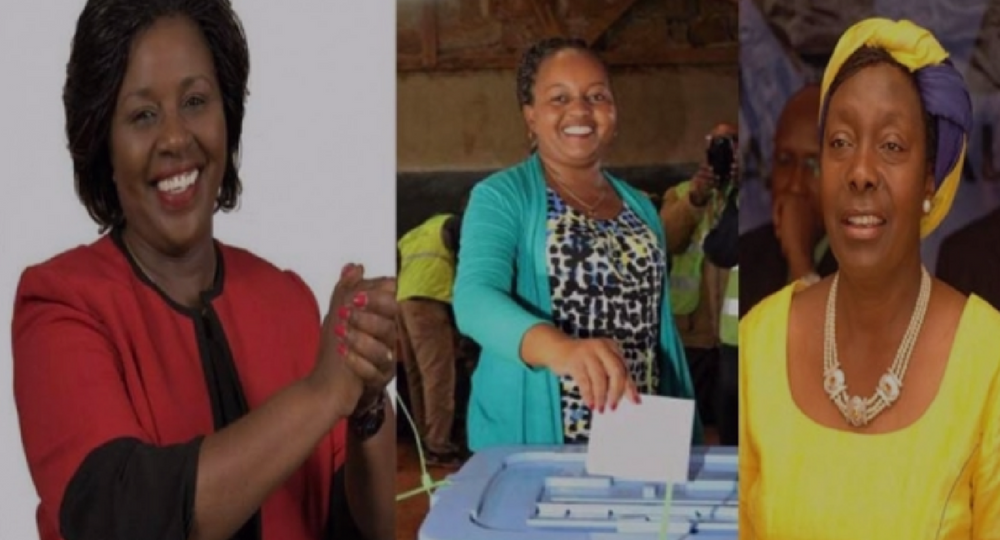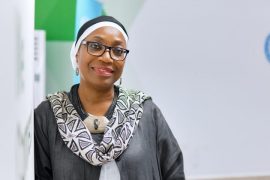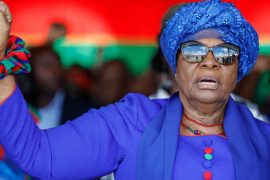By: Ene Ikpebe
‘Diversity and inclusion,’ a phrase that has increased in popularity over the last few years. The governments of the west, are replete with committees on matters of diversity, and consultants are being hired to create a favorable image for politicians as regards their stance on inclusion. Unfortunately, it is yet to rise to the top of the priority list for the governments of developing nations.
Interestingly, some of the most respected international organizations which developing countries interact with think that diversity and inclusion, specifically in terms of gender equality, should be of utmost concern. They believe it is a prerequisite for development.
In a 2015 interview with Nafis Sadiq, the Special Adviser to the United Nations Secretary-General, she expressed her desire to see more women in leadership positions, to have more political participation from women in general, and to hear the voices of women who are passionate about different issues. Her desires are shared by an increasing number of people worldwide, and gender equality is #5 among the Sustainable Development Goals. This goal is to be achieved in part by “ensuring women’s full and effective participation and equal opportunities for leadership at all levels of decision-making in political, economic and public life.” Still, only 22.2% of Sub-saharan Senates are made of women, maybe surprisingly higher than the 16% in Asia and 12.6% in Arab states, and only 22.8% of all national parliamentarians were women as of June 2016. This piece discusses the significance of women in politics, the positive impacts that should make it a development strategy, and the obstacles to achieving gender parity with regard to political participation.
To place the current fight for equality in the proper context, it is important to understand how gender equality in politics has evolved over the years. Voting is the most basic unit of political participation, but women in developing countries only got this in the past century. Most Latin American women were not allowed to vote until after the Second World War and African women had to wait until after their independence from colonialism in the 1960s and 1970s, with South African women not voting until as late as 1994. Given that these freedoms were not granted peacefully, but entailed significant amounts of struggle, we must consider reasons why it would benefit the developing world to seek the full integration of women into politics, and be proactive about realizing it.
The table below gives the percentage of women in the national parliaments of select developing nations.
Table 1: Women in National Parliaments
|
Country |
Elections |
Percentage of Women |
| Rwanda |
2013 |
38.5 |
|
Bolivia |
2014 |
47.2 |
|
Mexico |
2015 |
36.7 |
| South Africa | 2014 |
35.2 |
|
Namibia |
2014 | 23.8 |
|
Zimbabwe |
2013 |
47.5 |
| Nigeria | 2015 |
16.5 |
|
Jamaica |
2016 | 23.8 |
| Gabon |
2011 |
17.6 |
| Congo | 2012 |
19.4 |
|
Kenya |
2013 |
26.5 |
Evidently, the numbers follow no observable pattern, with Zimbabwean and Bolivian parliaments having up to 47% women while Nigeria sees a mere 16.5%. This might be interpreted as a lack of cohesive understanding regarding its importance, which is unfortunate since research literature is quick to draw a positive connection between women in politics and development. Stockemer, for instance, agrees with this notion. One might argue that the relationship exists but in the opposite direction. That is, developed countries are the ones who have more women in politics. But this is inaccurate as countries with low levels of socioeconomic development are the ones with higher levels of female political representation. Again, this indicates the need for a proper understanding of the benefits of women in politics.
First, women produce a diversity of views and ideas with regards to public issues, thereby ensuring thorough policy analysis and holistic approach to problem-solving. Developing countries, even though friendlier to women in formal politics, should realize that the very measures that they seek to improve would be positively impacted by greater female involvement. There is evidence that women in government in developed countries tend to emphasize such issues as access to birth control and child care, equal pay for equal work, affirmative action, and policies against sexual harassment while women in developed countries are more concerned with access to childhood immunizations, clean water, primary health care services, and affordable food. Therefore, developing countries should become more aggressive in their approach to achieving gender equality in politics so that issues like maternal and child health as well as girl child education – which has been proven to be linked to more controlled populations, and better socio economic conditions – will be taken more seriously.
But just as positive impacts abound, myriad challenges stand between developing countries and full political integration of women. Some of them are deep-set issues that will take consistent work transcending political administration changes to reverse, while others are what might be called double-pronged solutions in the sense that they address gender equality issues on matters of politics as well as in other areas. There are great women who have been politically active in Nigerian history, for instance, and the restored democracy of 1999 recommended 35% women participation in the National Policy on Women adopted the next year, but the unaggressive approach to achieving this, in reality, has left a less than healthy level of women involvement in politics and government, and points to the need for a review of the obstacles to greater women participation.
Primarily, education disparities are a hindrance to women in politics. Some may disagree with this view and propose a focus on the policies regarding freedom of entry into politics as the actual culprit. And they are right, but only on the surface level. If we think about it, simply opening the political space to women will not guarantee their entry. There are more underlying issues and I believe that a more educated female population would be more prepared to take advantage of new opportunities, speak passionately about their plans for their constituents, and compete on a level playing field with their male counterparts. Furthermore, only educated women might understand just how important it is for them to express themselves politically and struggle to participate in decision-making in public affairs. It is, therefore, my view that education should be the primary avenue for encouraging women into politics. Every girl-child should be availed of the opportunity to get a quality education, and whilst doing so, be encouraged no less than her male peers to aspire to leadership, political or otherwise.
But I recognize other hindrances like work-life balance, a very practical obstacle to political participation. In a traditionally patriarchal society like Nigeria, for instance, it is not uncommon to see a situation where women are expected to only be homemakers. Homemaking, child-rearing, and other domestic duties, while all crucial roles in the society, and full-time jobs for which multiple attempts to estimate economic value have fallen short, have precluded many a politically ambitious woman from succeeding. The solution is to create an environment where women who desire to apply themselves outside the home have access to resources that allow that.
These resources include time, in the form of paid maternal and paternal leave to relieve worries about proper child-care, as well as human resources in the form of employer provided child-care at government offices. It is difficult, near impossible, to imagine a world where women will not have to section their lives into work years and mothering years, but with a reorientation of society to see the raising of the next generation as a communal responsibility, it is not beyond reach. Gender equality should not be only a western idea. It is a fundamental human right.
The statistics necessitate congratulations to developing nations. Whether intentionally or as a result of wars that have depleted some countries’ male populations, they have come to trust in the leadership of women. But the goal of parity has not been reached. The Nigerian House of Representatives is only 5.56% women and presidential campaigns are dominated by men. Nigeria and other developing countries must take decided steps to changing this. It is for our own good.




